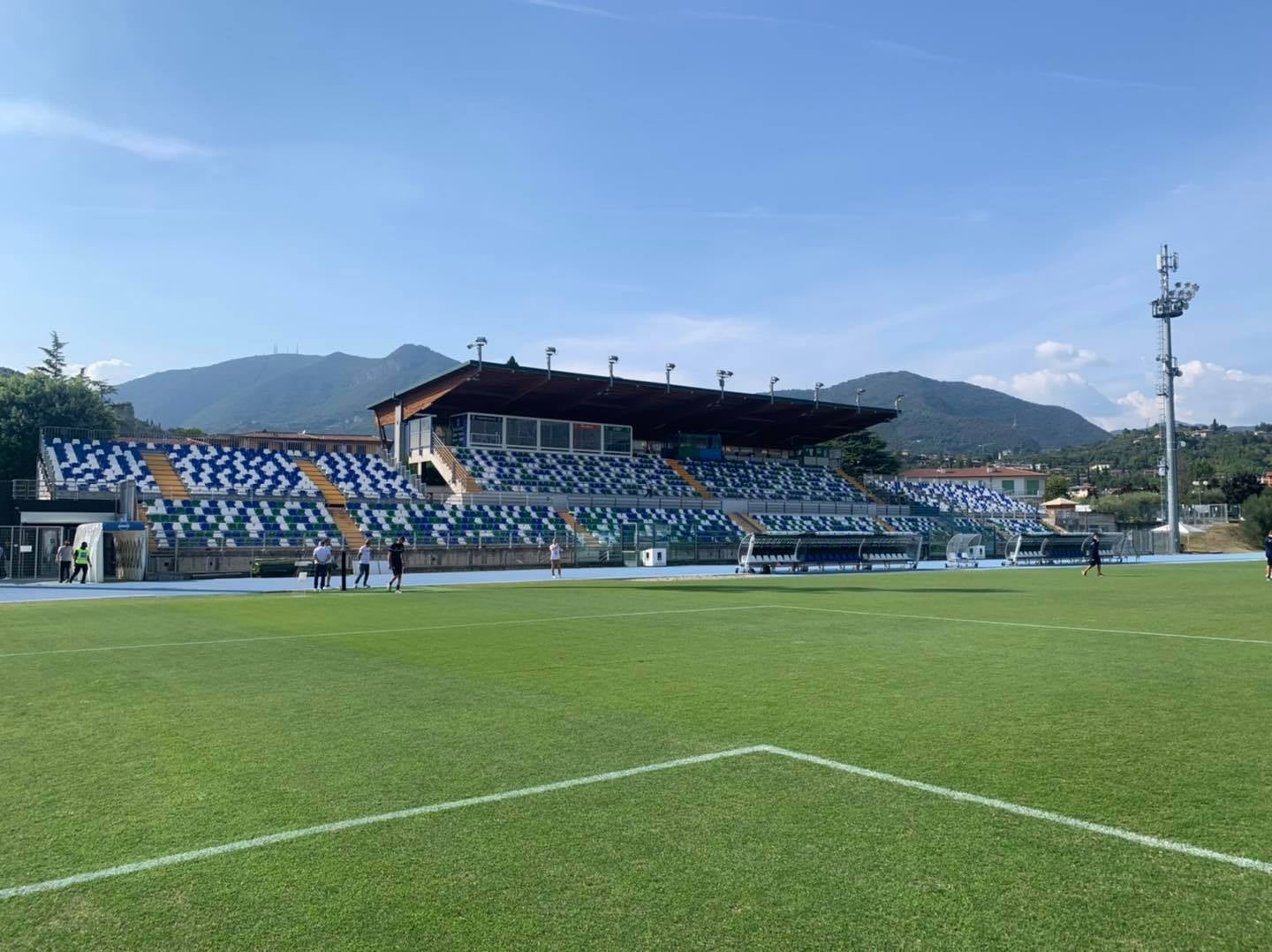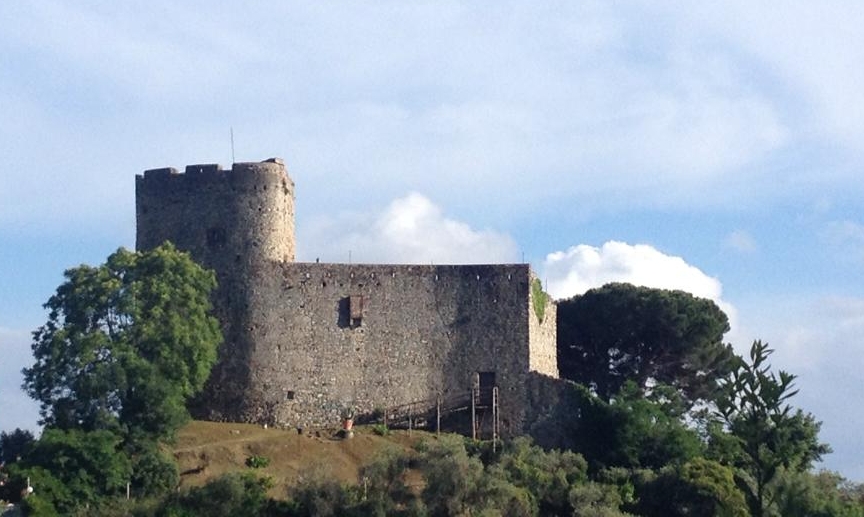|
2010–11 Lega Pro Seconda Divisione
The 2010–11 Lega Pro Seconda Divisione season was the thirty-third football league season of Italian Lega Pro Seconda Divisione since its establishment in 1978, and the third since the renaming from Serie C to Lega Pro. It was divided into two phases: the regular season, and the playoff phase. The league is usually composed of 54 teams divided into three divisions of 18 teams each. This year, only 49 teams met the financial criteria of the league. They will be divided geographically into three divisions of 17, 16 and 16 teams. Teams will play only other teams in their own division, once at home and once away. The 17-team division teams will play 32 matches each, while the 16-team division teams will play 30 matches each. Teams finishing first in the regular season, plus one team winning the playoff round from each division will be promoted to Lega Pro Prima Divisione. Usually, three teams from each division are relegated to Serie D; the team finishing last and two relegation p ... [...More Info...] [...Related Items...] OR: [Wikipedia] [Google] [Baidu] |
Lega Pro Seconda Divisione
Serie C2 was the fourth highest football league in Italy, the lowest with a professional status. History Before the 1978–79 season, there were only three professional football leagues in Italy, the third being Serie C. The league menaging the C was also organizing the semi-professional Serie D. In 1978, it was decided to split the Serie C into Serie C1 (the third highest league) and Serie C2, moving the remnants of the Serie D to the amatorial sector as Campionato Interregionale. Upon its inception in 1978–79, Serie C2 consisted of four groups of 18 teams, with two promotions and three relegations. During the season, teams only played the other teams in their division, according to the round robin method. The groups were reduced to three from the start of the 1991–92 season. More notably, play-offs were introduced for the second promotion and the penultimate and the third relegation, together with the 3-victory-points rule. After the 2007–08 season, the league wa ... [...More Info...] [...Related Items...] OR: [Wikipedia] [Google] [Baidu] |
L'Aquila Calcio 1927
L'Aquila 1927 is an Italian association football club located in L'Aquila, Abruzzo. They currently play in the Serie D. History Existence of football clubs in L'Aquila can be traced back to 1915, when an amateur club called Football Club L'Aquila, then unregistered to the Italian Football Federation, already existed; in 1926, this club began using red and blue as their official colors. In 1927, a new club called Società Sportiva Città dell'Aquila was founded, but lasted only a few years. In September 1931, Associazione Sportiva L'Aquila was founded as local fascist sports organizations starting playing in the locally organized ''Seconda Divisione''. After two promotions, L'Aquila spent its first season in the second-tier Serie B. In 1936, a train accident on the Terni–Sulmona railway near Contigliano, Lazio seriously injured several of the team's players and left head coach Attilio Buratti dead. Later, the club later did not manage to escape relegation and its Serie B tenu ... [...More Info...] [...Related Items...] OR: [Wikipedia] [Google] [Baidu] |
Calcio Lecco 1912
Calcio Lecco, or simply Lecco, is a football team based in Lecco, Lombardy, Italy. Founded in 1912, the club plays in . Lecco has played in three Serie A tournaments (the last of which in the 1966–67 season) and twelve in Serie B. The club won one Coppa Italia Semiprofessionisti domestically, and one Anglo-Italian Cup internationally. History Early history (1912–1931) On 22 December 1912, on the idea of board member Vico Signorelli, Società Canottieri Lecco (founded on 27 September 1895 at the Caffè del Teatro Sociale) set up its own football section. The club colors were blue and light blue, taken from the historic Canottieri uniform. The first headquarters was set up in Francesco Nullo street. On 13 April 1913, the ''Blucelesti'' (noted in some documents as "Canottieri Lecco Football Club") played their first match in a 4–1 defeat to Milan. They then participated in local friendlies and tournaments, coached by Achille Todeschini. Canottieri Lecco's debut in a ... [...More Info...] [...Related Items...] OR: [Wikipedia] [Google] [Baidu] |
Stadio Lino Turina
Stadio Lino Turina is a multi-use stadium in Salò, Italy. It is currently used mostly for football Football is a family of team sports that involve, to varying degrees, kick (football), kicking a football (ball), ball to score a goal (sports), goal. Unqualified, football (word), the word ''football'' generally means the form of football t ... matches and is the home ground of FeralpiSalò. The stadium holds 2,364. External linksStadio Lino Turinaat Soccerway Lino Turina Sports venues in Lombardy 1963 establishments in Italy Sports venues completed in 1963 Salò, Lombardy {{Italy-sports-venue-stub ... [...More Info...] [...Related Items...] OR: [Wikipedia] [Google] [Baidu] |
Lonato Del Garda
Lonato del Garda (before 1 July 2007 simply Lonato; , ) is a town and municipality () in the province of Brescia, in Lombardy, northern Italy. Lonato is located about halfway between Milan and Venice, on the southwest shore of Lake Garda, the biggest lake in Italy. Neighbouring communities are Castiglione delle Stiviere, Desenzano del Garda, Calcinato, Bedizzole, Calvagese della Riviera, Padenghe sul Garda, Pozzolengo, Montichiari, Solferino. The town is a holiday destination due to its scenic lakeside location about from the lake and its numerous historical and artistic monuments and museums, prehistoric sites ( pile dwellings), Roman ruins, Medieval castle, Baroque churches and modern museums. History The area of Lonato del Garda, located on the morainic hills southwest of Lake Garda, has been inhabited since the Bronze Age. Early human settlements were established on pile dwellings (palafitte), as confirmed by archaeological discoveries in the peat bogs of Polada, Lava ... [...More Info...] [...Related Items...] OR: [Wikipedia] [Google] [Baidu] |
Salò
Salò (; ) is a town and ''comune'' in the Province of Brescia in the region of Lombardy (northern Italy) on the banks of Lake Garda, on which it has the longest promenade. The city was the Governance#Seat of government, seat of government of the Italian Social Republic from 1943 to 1945, a state often referred to as the "Salò Republic" (''Repubblica di Salò'' in Italian). History Roman period Although legend has it that Salò has Etruscans, Etruscan origins, recorded history starts with the founding by ancient Romans of the colony of ''Pagus Salodium''. There are numerous ruins of the Roman settlement, as shown by the ''Lugone necropolis'' (in via Sant'Jago) and the findings (vase-flasks and funeral steles) in the Civic Archaeological Museum located at the ''Loggia della Magnifica Patria''. Middle Ages During the high Middle Ages, the city shared the same history as that of Lombardy. The origins of the municipality of Salò are barely known: its autonomy from Brescia can be ... [...More Info...] [...Related Items...] OR: [Wikipedia] [Google] [Baidu] |
Stadio Comunale (Chiavari)
Stadio Comunale Enrico "Richin" Sannazzari is a multi-purpose stadium in Chiavari, Italy. It is mainly used for association football, football matches and hosts the home matches of local Italian Serie B club Virtus Entella. The stadium has a capacity of 5,535 spectators. Football venues in Italy Multi-purpose stadiums in Italy Virtus Entella 1933 establishments in Italy Sports venues completed in 1933 {{Italy-sports-venue-stub ... [...More Info...] [...Related Items...] OR: [Wikipedia] [Google] [Baidu] |
Chiavari
Chiavari (; ) is a seaside comune (municipality) in the Metropolitan City of Genoa, in Italy. It has about 28,000 inhabitants. It has a beachside promenade and a marina and is situated near the river Entella (river), Entella. History Pre-Roman and Roman Era A pre-Roman necropolis, which dates from the 8th to 7th century BC, has been uncovered in the area where Chiavari is located now. Chiavari grew up on the traces of a Roman camp on the Via Aurelia. Medieval Era A Chiavari Castle, castle was constructed in 1147. The old town contains numerous arcades and buildings from the 13th century, including a castle, several mansions, and the nearby Church of San Salvatore di Lavagna, which was founded in 1224 by Innocent IV. The cathedral was rebuilt in 1613. Famous as a center of humanism, Chiavari has a public library with a collection of manuscripts and incunabula. After the discovery of the conspiracy of the Fieschi, in 1542, and the capture of Chiavari by the Counts of Lavagna, ... [...More Info...] [...Related Items...] OR: [Wikipedia] [Google] [Baidu] |
Stadio Natale Palli
Stadio (literally, ''Stadium'') is an Italian pop rock band formed in 1977. The members are Giovanni Pezzoli (drums), Roberto Drovandi (bass guitar), Andrea Fornili (guitar), and Gaetano Curreri (vocals and keyboard). Formation and early recordings The group had a long-standing arrangement as an accompanying band to Lucio Dalla, a Bologna-born singer. Stadio had its first notable public appearance in the mid-1970s, when the group appeared on Lucio Dalla's 1975 collaborative album with Roberto Roversi, '' Anidride Solforosa'' (Italian for "sulfur dioxide"). The members of Stadio on this album were Giovanni Pezzoli playing the drums, Marco Nanni playing the bass and Fabio Liberators playing the keyboard. The same musicians were featured on Dalla's 1977 album ''Com'è profondo il mare'' (How deep is the sea?). The next Lucio Dalla single was released in February 1979 and a new Stadio member was introduced: guitarist Ricky Portera. This release, on the eve of the ''Banana Republi ... [...More Info...] [...Related Items...] OR: [Wikipedia] [Google] [Baidu] |
Casale Monferrato
Casale Monferrato () is a town in the Piedmont region of Northwest Italy, northwestern Italy, in the province of Alessandria. It is situated about east of Turin on the right bank of the Po River, Po, where the river runs at the foot of the Montferrat hills. Beyond the river lies the vast plain of the Po valley. An ancient Roman ''municipium'', the town has been the most important trade and manufacturing centre of the area for centuries. After the fall of the Roman Empire, Casale became a free municipality and, in the 15th and early 16th centuries, served as the capital of the House of Palaiologos. Then in 1536, the town passed to the House of Gonzaga, Gonzagas who fortified it with a large citadel. In the 17th century, Casale was heavily involved in the War of the Mantuan Succession and besieged by French and Spanish troops. During the wars of Italian unification the town was a defensive bulwark against the Austrian Empire. In the 1900s Casale, in the middle of the Turin-Milan-Ge ... [...More Info...] [...Related Items...] OR: [Wikipedia] [Google] [Baidu] |
Stadio Franco Cerutti
Stadio (literally, ''Stadium'') is an Italian pop rock band formed in 1977. The members are Giovanni Pezzoli (drums), Roberto Drovandi (bass guitar), Andrea Fornili (guitar), and Gaetano Curreri (vocals and keyboard). Formation and early recordings The group had a long-standing arrangement as an accompanying band to Lucio Dalla, a Bologna-born singer. Stadio had its first notable public appearance in the mid-1970s, when the group appeared on Lucio Dalla's 1975 collaborative album with Roberto Roversi, '' Anidride Solforosa'' (Italian for "sulfur dioxide"). The members of Stadio on this album were Giovanni Pezzoli playing the drums, Marco Nanni playing the bass and Fabio Liberators playing the keyboard. The same musicians were featured on Dalla's 1977 album ''Com'è profondo il mare'' (How deep is the sea?). The next Lucio Dalla single was released in February 1979 and a new Stadio member was introduced: guitarist Ricky Portera. This release, on the eve of the ''Banana Republi ... [...More Info...] [...Related Items...] OR: [Wikipedia] [Google] [Baidu] |




